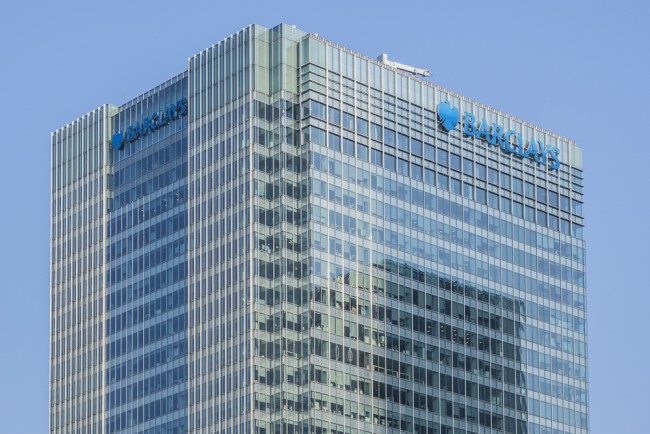Barclays is coming under intense pressure from angry shareholders to claw back bonuses from bankers responsible for the “elephant deal” scandal that led to it being fined £72 million this week
The scandal has led to the bank having its reputation dragged through the mud again, reports The Times.
One large institutional shareholder said it was essential that John McFarlane, the chairman, and Crawford Gillies, head of the board remuneration committee, address the issue and communicate with investors soon.
“Barclays must be transparent about this,” he said. “They must say what the numbers are and how much has been or is being clawed back. This will definitely have to come up in conversations.”
The bank was severely reprimanded by the Financial Conduct Authority for failing to check out properly a £1.88 billion deal that it handled for “politically exposed people” — powerful clients who might be in a position to take bribes that needed laundering.
The FCA uncovered a catalogue of mistakes, including failing to check out the source of the clients’ wealth, bending over backwards to indulge their desire for secrecy and failing to put a single accountable person in charge. The transaction was known internally as an elephant deal because of the profit that it would yield to Barclays — £52 million.
Most of the senior people at the wealth division, where the failings took place, including Tom Kalaris, its chief executive, have left the bank, but some of them are believed to be owed deferred bonuses as they come due.
The FCA, which named no one this week, declined to say whether it was also pursuing any enforcement proceedings against individuals because of the scandal.
Mr Kalaris, a key lieutenant of Bob Diamond, the former chief executive, left in March 2013. He had scooped bumper pay deals in previous years. In 2010, he was paid a total of £13.8 million in pay, short-term bonuses and crystallising long-term bonuses.
Mr Kalaris is understood to be trying to launch a wealth management business in London and has raised £35 million from investors. He needs authorisation from regulators. He is listed as “inactive” on the FCA’s register of approved persons.
Dominic Stearns, the former head of compliance, who left in 2012, also is “inactive”, as is Oliver Gregson, the former head of discretionary wealth management, and Andrew Tinney, the former chief operating officer, who resigned after shredding a sensitive report criticising the culture at the division.
Other senior figures from the division at the time include David Semaya, head of UK private banking, who is now with Nikko Asset Management.
It is not clear which senior people in the division were aware of the suspect transaction, nor whether other senior executives in other parts of the bank had knowledge of it.
One private shareholder in Barclays said that there was no excuse for the bank not to act in trying to penalise the people responsible. Even though the offences took place in 2011 and 2012, the deferral of bonuses for up to three years probably meant that senior people responsible were still due some of their bonuses next year. Barclays should stop these being paid out “at the very least”.
Barclays declined to comment yesterday on reports that the unnamed clients were from Qatar. Separately, the bank is being investigated by the Serious Fraud Office and American regulators over £332 million of alleged sweeteners paid to Qatari officials during the height of the banking crisis.
On clawbacks, Barclays said: “The bank considers individual accountability and ensures that remuneration is reduced where appropriate. This includes reductions to bonuses and unvested awards and clawback where warranted. It is not possible or appropriate to comment on individual cases.”


